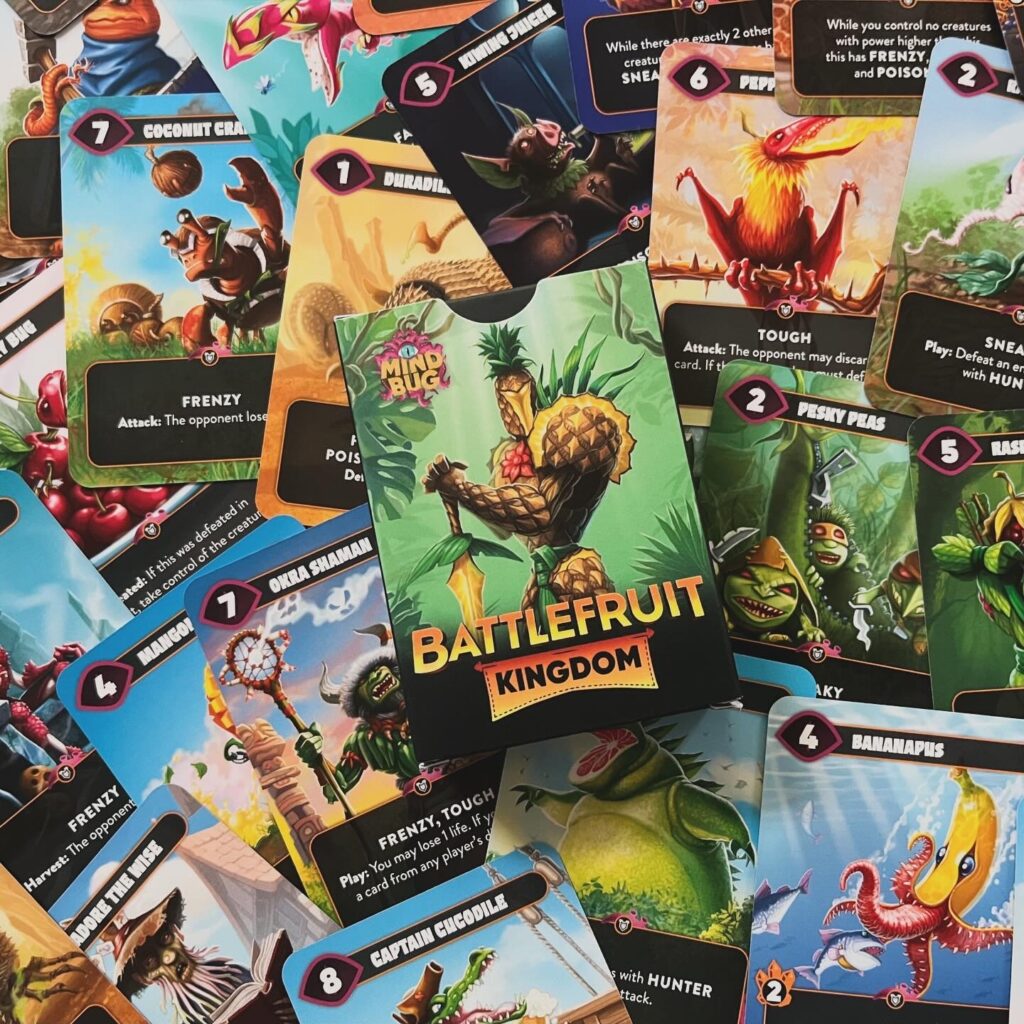In 2022 Mind Bug: The First Contact was released and Dice Daniel wrote a pretty rave review of this little card game that was/is also available in a handy tuck box so it also makes an ideal travel game. You can read our original review here, but Mindbug is now more than just that stack of cards. There are several sets available and in this blog we list all the critters!
Mindbug?
Mindbug was conceived and developed by (among others) Richard Garfield. You may know Garfield as one of the creators of Magic the Gathering, King of Tokyo, The Hunger and his love of lasagna. In other words, a man with a pretty broad body of work. I’m certainly not the biggest fan of Magic, and that’s largely because of the collecting element. I always liked the game mechanics and had a lot of fun testing different combinations and strategies.
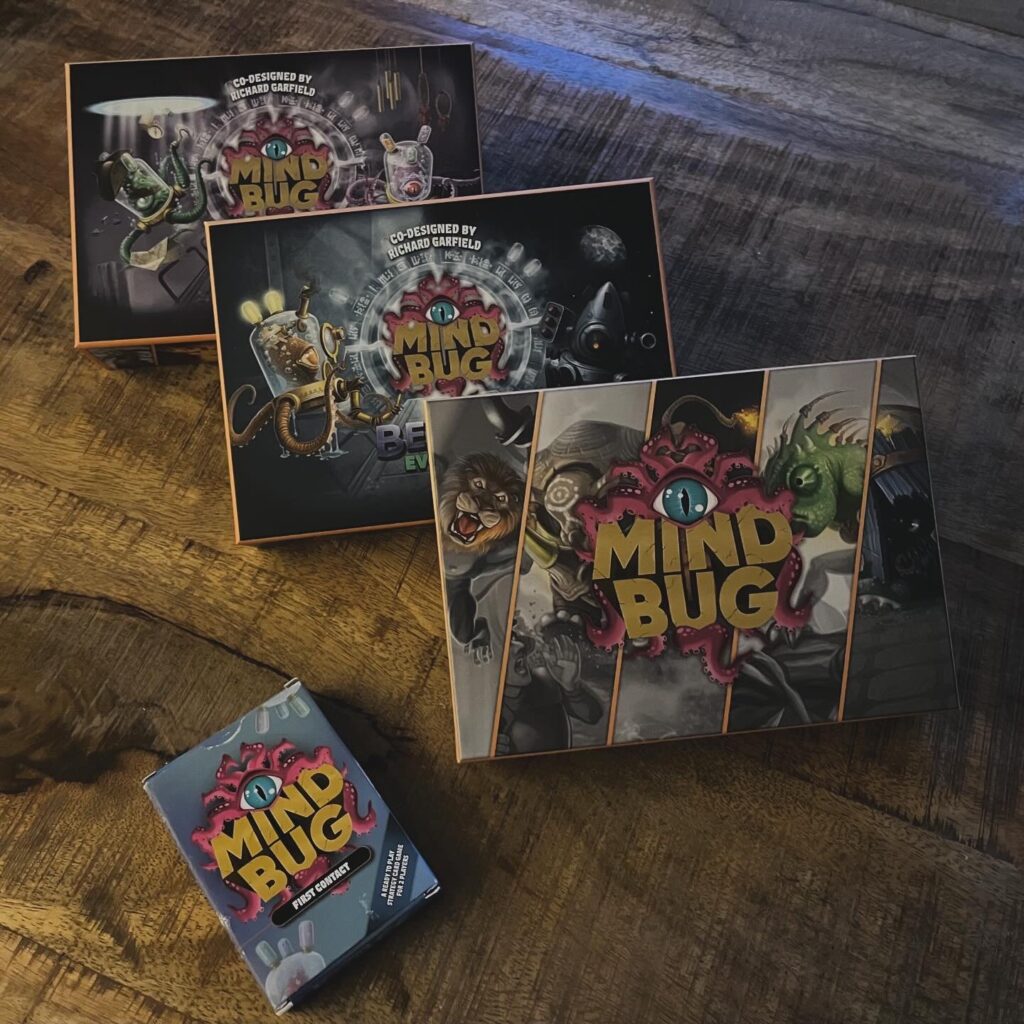
In Magic you can make hefty combinations with the right cards and it’s amazing how much complexity you can get out of a pile of cards. The biggest drawback for me is the collecting, but really especially the culture around collecting. Buying and opening packs is exciting and drawing the right cards is even more exciting. The dopamine shot I understand all too well. The whole buying and selling of single cards and the absurd amounts, on the other hand… Mindbug gives me the same thrill as a TCG – namely, the delightful combos and the positively unpredictable – without the nasty aftertaste and the game of chance that many TCGs do have.
Gameplay
In Mindbug, two players (or several by adding expansions) do not assemble a deck of 60 cards, but receive 10 cards from a standard deck for a quick and smooth game of brawl. Players need to perform only 1 of 2 possible actions during their turn: play a card or launch an attack. In Mindbug, players play hybrid monster to defeat their opponent, but there is a twist: each player has twice the ability to steal a played card from another player with his or her mindbugs.
Those mindbugs make for a lot of dilemmas, a little bluff and, above all, a lot of tactics. Do you dare play a certain card when another player still has a mindbug available? When do you use your own mindbug? Each player has only two, so the timing of deployment is crucial.
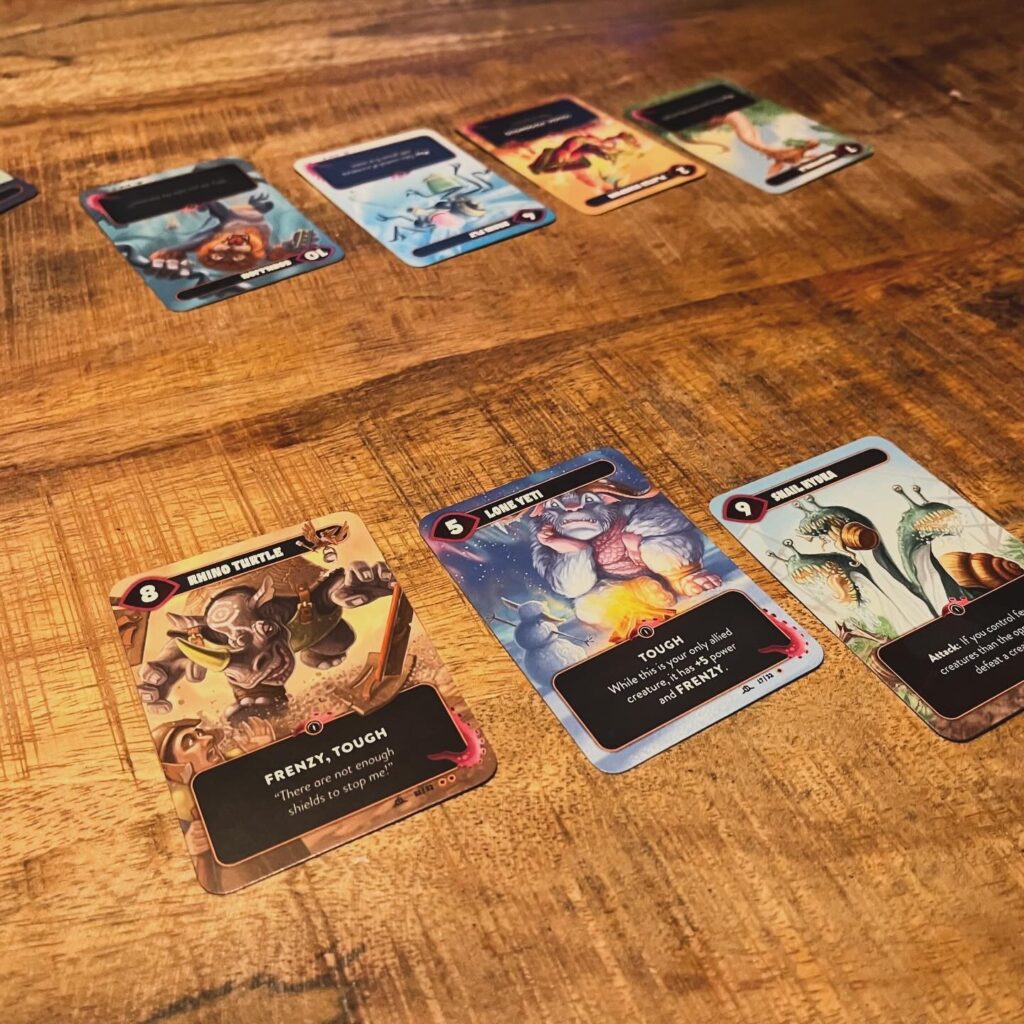
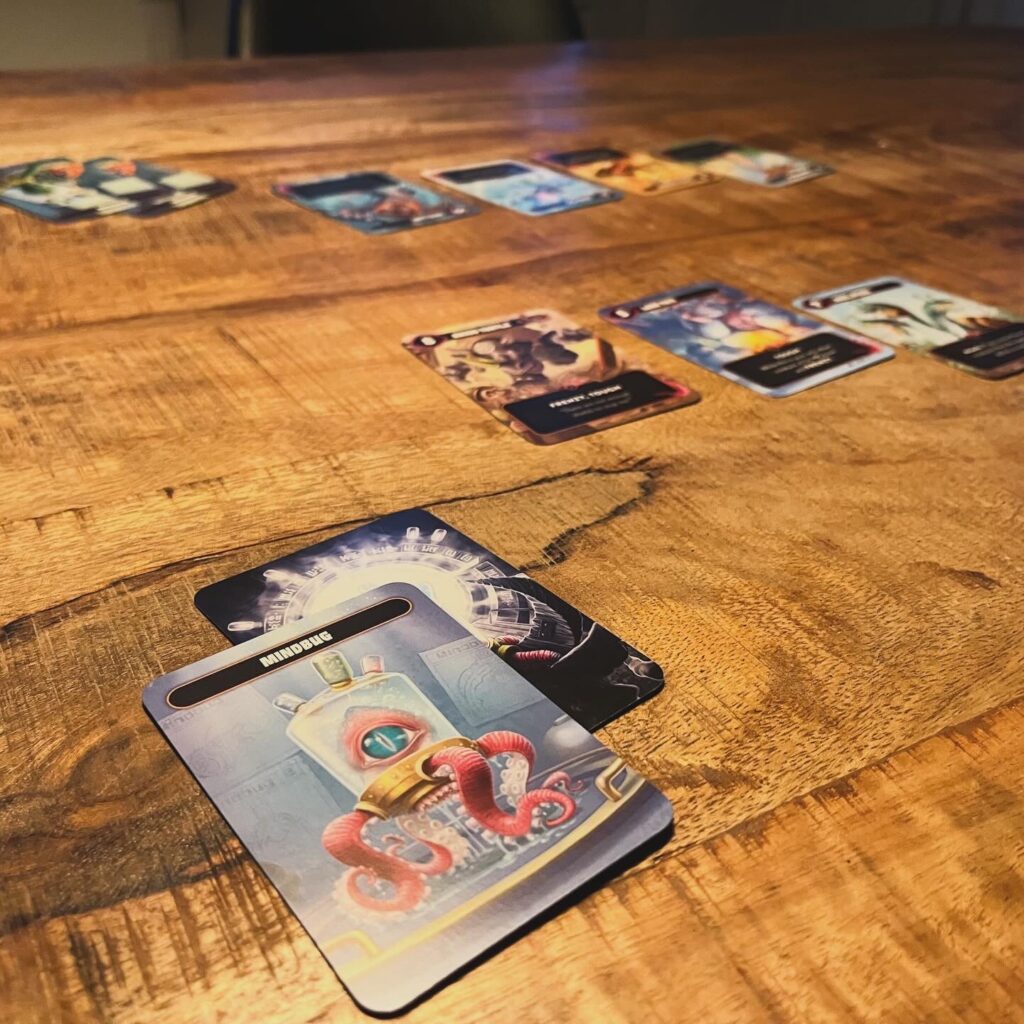
By playing cards, players gain new forces but can also potentially activate effects from these cards. In fact, some cards have special properties that can be used during an attack or perhaps even at other times. Many of the cards contain so-called keywords that indicate shared general properties for smooth and orderly play.
By attacking, players can defeat other players’ monsters and possibly activate effects again. A player under attack can defend with one of his or her monsters. The monster with the highest value wins, but some monsters have special properties that can affect the course of the battle. If a player cannot or will not earn, that player loses a life. Once a player has lost all his or her life points, the game is over.
All the bugs
As we described in our review: Mindbug is a wonderfully simple and smooth card game with particularly funny artwork, sharp tactics and fun combinations. A small but nice game that easily fits in any bag. Now there are several sets available. Most of these sets are stand-alone expansions that you can play independently, but also combine with other sets, so you have a hefty pile of cards and every game of Mindbug will be different. Many of these sets introduce new game rules or effects of cards. What sets are there?
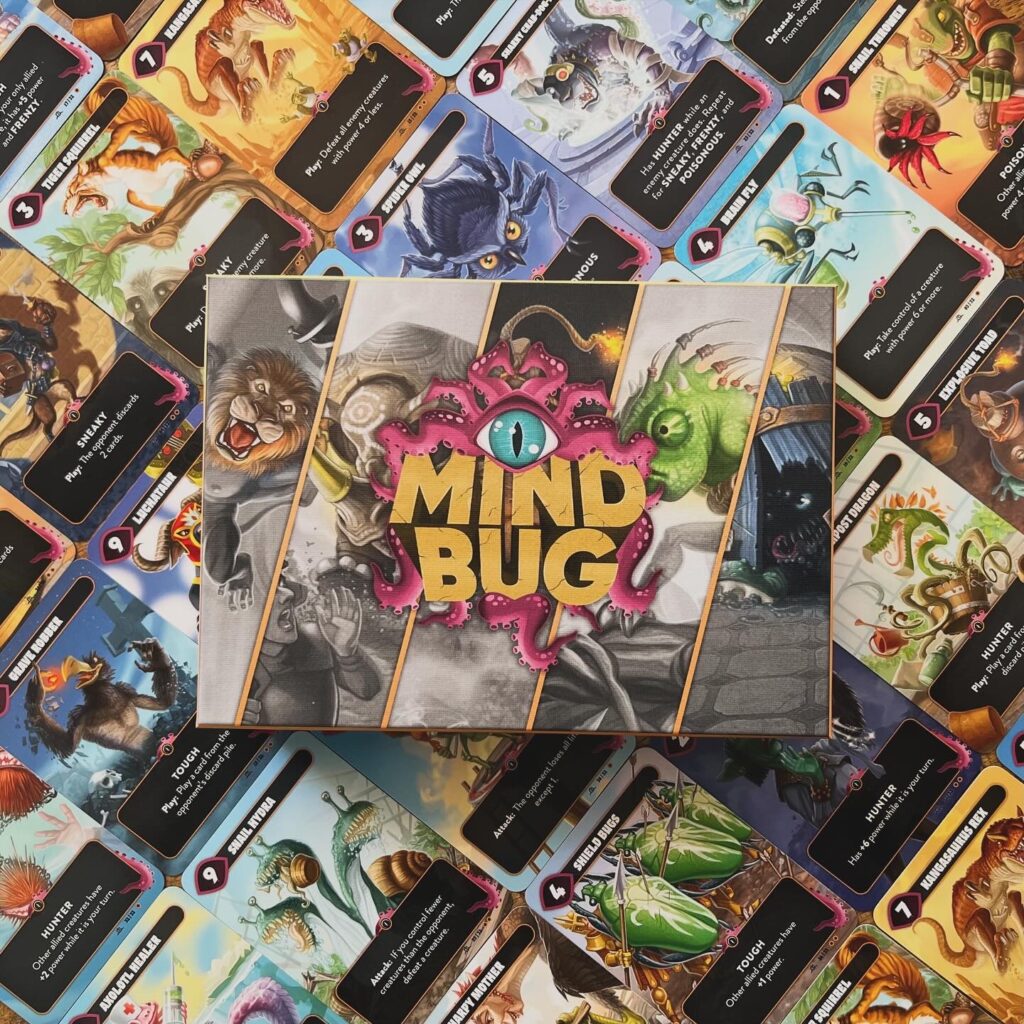
The base game (First Contact) introduces us to Mindbug. In addition to the tuckbox edition, there is also a more deluxe version with turntables on which players can keep track of their lives. The basic game contains 52 cards, from which players can already get a particular amount of depth. One advantage of the tuckbox is its handy size, but this Deluxe edition also fits easily into almost any bag, and an added benefit: plenty of room for multiple cards from multiple sets.
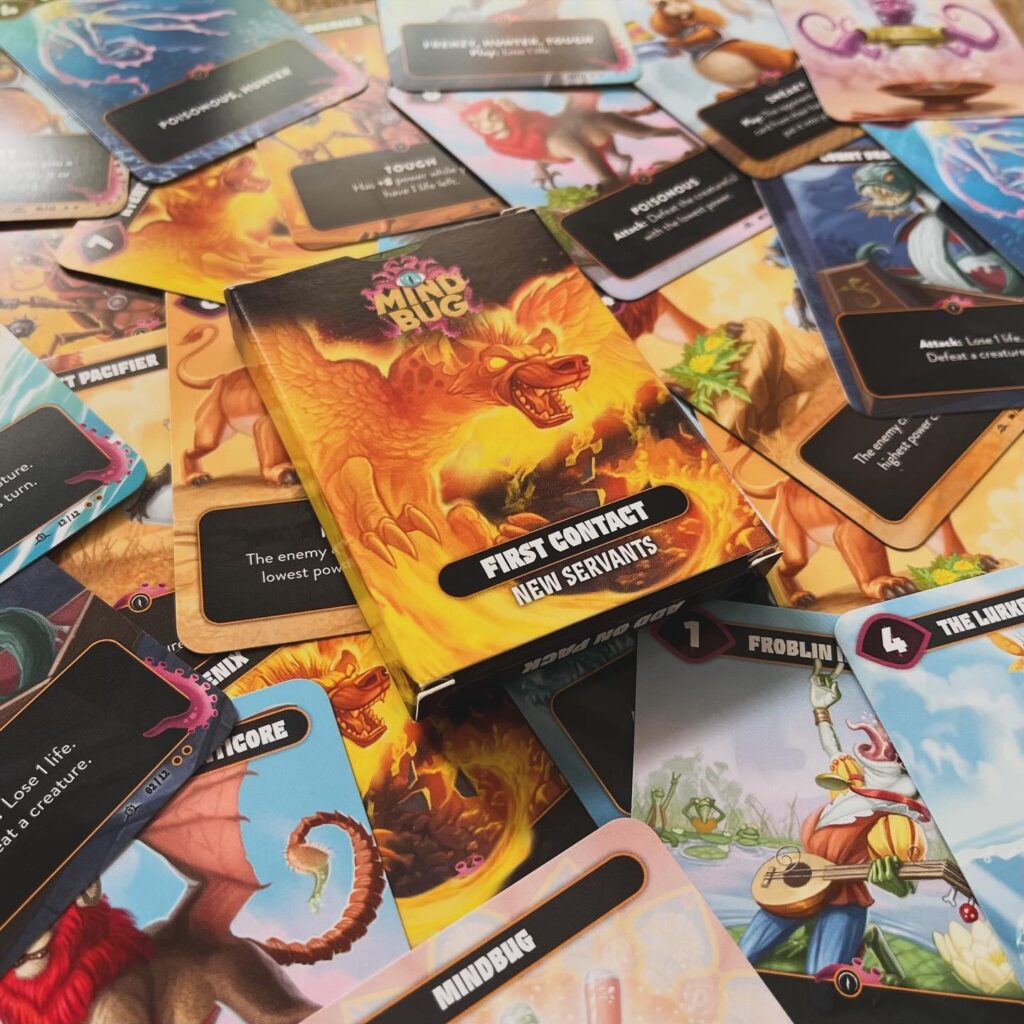
Looking for some extra cards? First Contact – New Servants is an expansion set that allows you to add 24 cards to your collection. The set also includes two additional types of mindbugs so you can add some extra personal flair to the game, as well as so you can play the game with up to 4 players annually! Mindbug For this set you need a base game or standalone expansion.
In 2023, Nerdlab released two stand-alone expansion sets: Beyond Evolution and Beyond Eternity. Beyond Evolution contains 44 new cards, 4 double-sided Evolution cards, turntables to keep track of lives and, again, two sets of mindbugs. Evolution introduces a new mechanism that allows some cards to evolve, just like in Pokemon. These cards become stronger the further they are evolved. A set to make Darwin proud.
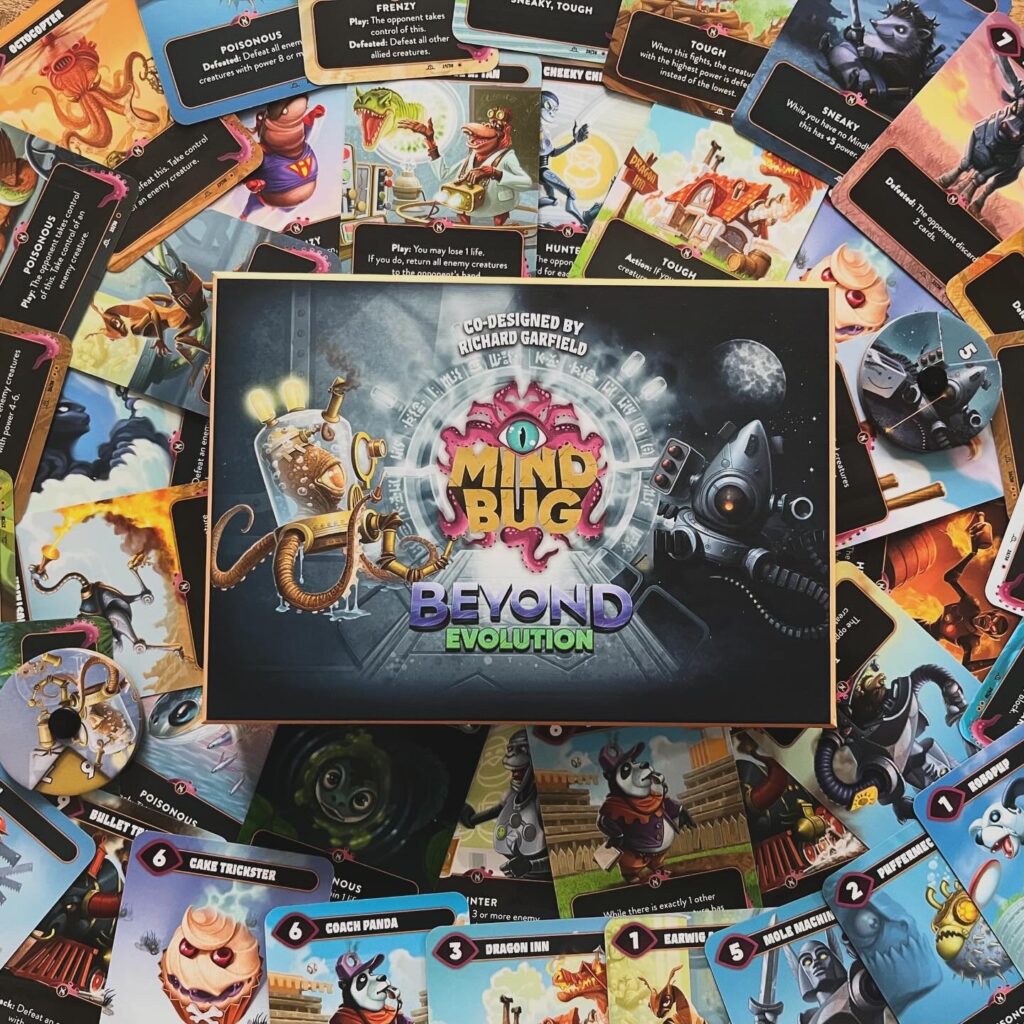
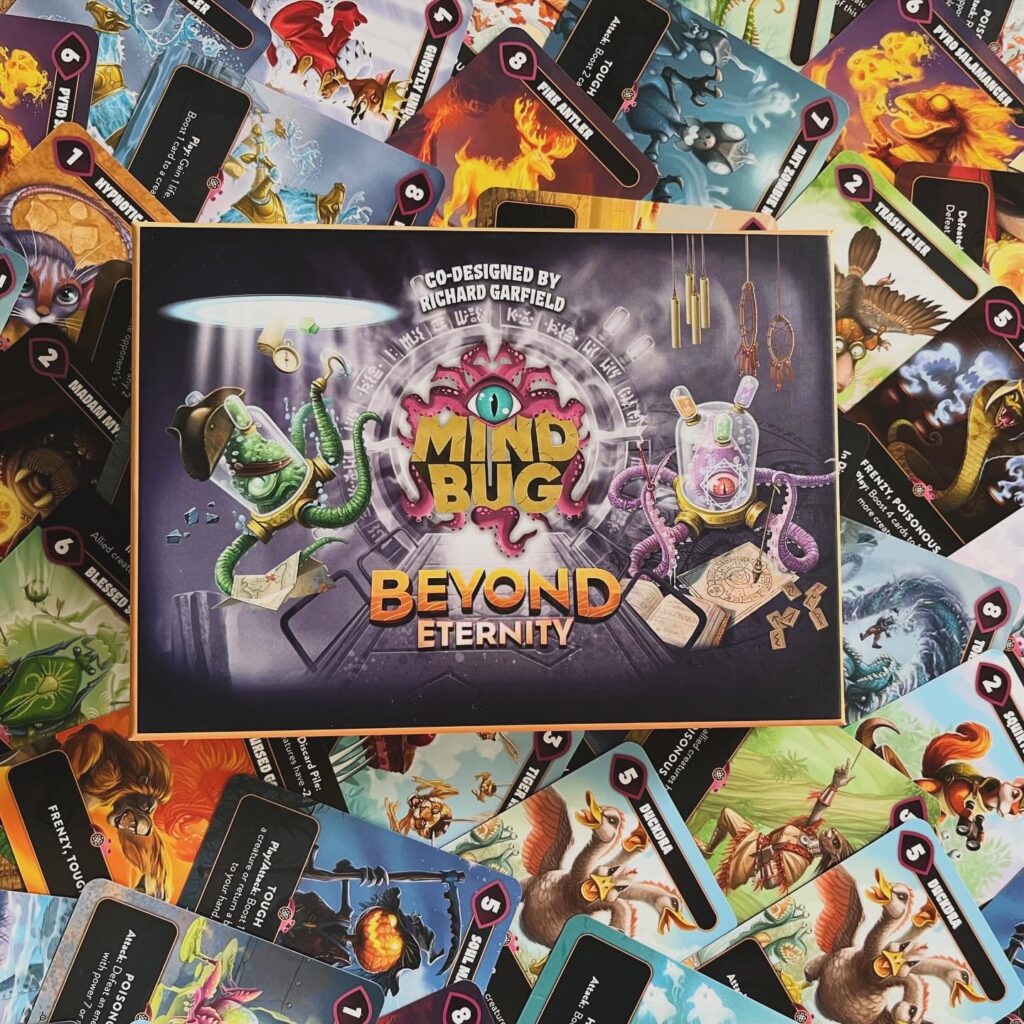
In Eternity, players get 48 new creatures, two sets of mindbugs and also two turn cards again. This set introduces boost allowing players to reuse cards from the discard pile and some cards have additional effects when placed in or lying in the discard pile. So with Evolution and Eternity, mechanisms are introduced that players may be familiar with from other games, but obviously with that Mindbug twist. These elements add depth to the game.
Future
The makers of Mindbug are far from finished. In fact, they are currently running a new campaign through Gamefound where players can crowdfund the latest sets. These new sets provide a fresh and fruity addition to the universe. You can read more about Battlefruit Kingdom and Battlefruit Galaxy in our separate preview.
